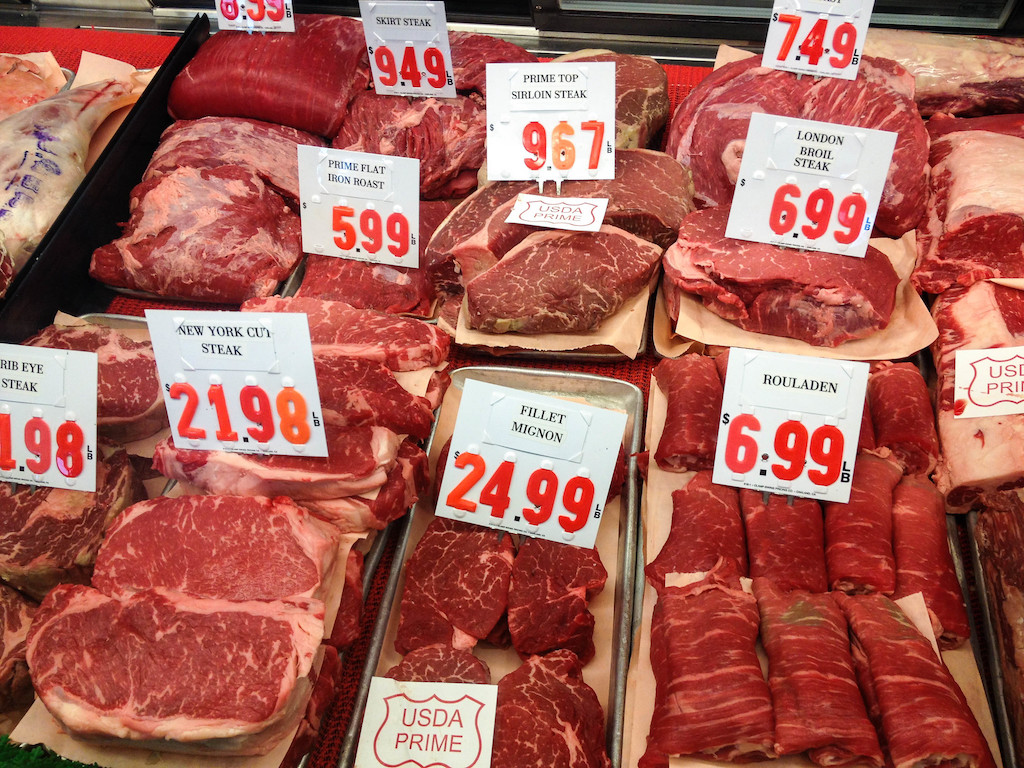3 Mins Read
Leading health professionals in the U.K. have called on the government to introduce a carbon tax on high-emissions foods, such as meat and dairy products. It is part of a suite of measures being recommended to slash the country’s food-related greenhouse gas emissions and improve public health.
Published on Wednesday (November 4), a new report by the U.K. Health Alliance on Climate Change (UKHACC) is calling for new food labelling and policies to decarbonise the country’s food system. The body represents leading health professionals in the country from British Medical Association, British Medical Journal, the Lancet and 18 other health organisations, and says that there must be a radical transformation in food consumption and production, which makes up over a quarter of the world’s total greenhouse gas emissions.
Red meat consumption will need to be cut by half if the food system is to stay within sustainable environmental limits. Changing our diets in this way will not only help to mitigate climate change but will also improve our health.
UKHACC Report
According to the study, more than two-thirds (68%) of the country’s health professionals are now deeply concerned about the impact of food on the climate, and agree that dietary changes such as reducing meat intake must be at the heart of food policies going forward to improve both the health of the planet and people.
“I am the first to admit that I enjoy a steak every now and then, but it’s clear that if we are to avoid dangerous levels of global warming we must start to reconsider our attitudes to food.” said Professor Andrew Goddard, president of the Royal College of Physicians.
“It will be necessary for individuals and organisations to change their behaviour to reduce food’s contribution to the climate emergency, and the NHS in England has recently set a target to become carbon neutral by 2040,” the authors of the report write. “However, UKHACC believes that the Government must do more to encourage, enable and support these changes.”
Among some of the measures that the paper outlines include improving public information on the climate impact of dietary choices and introducing environmental food labelling to help consumers take sustainable action. The alliance also advises the government to change public procurement rules to require all procured food to meet minimum environmental standards.
In addition, the UKHACC report suggests that a carbon tax should be introduced on foods with a high environmental footprint, such as meat, if voluntary action from the food industry is not taken by 2025. Given that carbon-intensive animal products tend to also be unhealthy, experts believe that the levy could boost overall public health, in particular in lowering rates of stroke, heart disease, diabetes and death from all causes.
It will be necessary for individuals and organisations to change their behaviour to reduce food’s contribution to the climate emergency.
UKHACC Report
“Fiscal incentives have proven effective in changing behaviour and the so-called ‘Sugar Tax’ demonstrates that it is possible to develop such mechanisms in relation to food,” the report writes. “Red meat consumption will need to be cut by half if the food system is to stay within sustainable environmental limits. Changing our diets in this way will not only help to mitigate climate change but will also improve our health.”
Carbon food labelling is already being tested by some companies around Europe as a part of their sustainability initiatives and aim to help consumers make more informed food decisions. Swedish food brand Felix, for instance, has recently opened up a new Climate Store where customers will have to pay using a “carbon currency” – the higher the environmental footprint, the costlier the product.
Meanwhile, German discount retailer Penny launched a campaign showing consumers the hidden environmental cost of food alongside its retail price, which saw meat and dairy products priced significantly higher. Minced meat was nearly three times more expensive and the cost of cow’s milk doubled.
The calls of U.K. health professionals come as multiple studies and expert reports have indicated the need for a mass shift away from animal meat consumption. In September, research pointed out that moving to plant-based proteins could remove more than a decade of emissions, and also crucially protect biodiversity, which would reduce the risks of future pandemics.
Lead image courtesy of Dawn Endico / Flickr.




